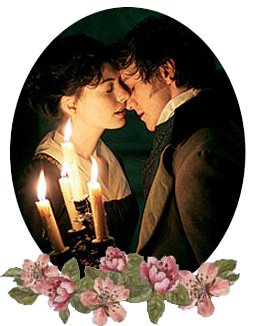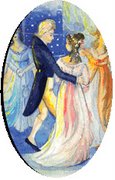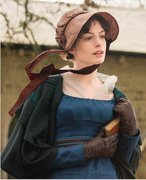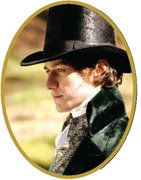Jane Austen Quote - Week 14 by Linda
 This helpful quote is from P&P, Chapter 56:
This helpful quote is from P&P, Chapter 56:
“You may ask questions which I shall not choose to answer.”
Here is the context for that gem. Lady Catherine is trying her utmost to get Elizabeth to deny that there is an engagement to Darcy:
"And can you likewise declare, that there is no foundation for it?"
"I do not pretend to possess equal frankness with your ladyship. You may ask questions which I shall not choose to answer."
“This is not to be borne! Miss Bennet, I insist on being satisfied. Has he, has my nephew, made you an offer of marriage?" 
"Your ladyship has declared it to be impossible."
Once again, Jane has given us a treasure. I only wish I had known that I had the right to dismiss unwanted questions in like manner. I could have never been so rude as to not answer a direct question. This has been my problem for ages since I was not taught in school nor learned by nurture that women should be treated as rational beings and have their person respected in all things.
Much to my dismay, I learned that lesson too late in my life and the damage had been done already. I could have been spared grief, and all the synonyms that accompany it such as remorse, anguish, pain, sorrow, misery, unhappiness, shame, suffering, and regret. That should give you a fairly good picture of what comes of being an obedient daughter and wife rather than using one’s own better judgment. Total, unreasoning obedience makes one into a 'doormat' which other people use to 'wipe their feet on' when things in their life go wrong or they are in a bad humor.
If you want a real eye-opener, read John Stuart Mill’s essay on “The Subjection of Women” that I recently stumbled into. You can read it here: The Subjection of Women

Read it and weep. I think Mr. Mill and his wife bear some looking into.
Linda the Librarian


 Here are the answers:
Here are the answers:



 Pic 1:
Pic 1: 







.jpg)


 (All emphasis my own)
(All emphasis my own)





 Emma is informing Mr. Knightley that Harriet Smith had refused an offer of marriage from Robert Martin. Mr. Knightley says:
Emma is informing Mr. Knightley that Harriet Smith had refused an offer of marriage from Robert Martin. Mr. Knightley says:










































